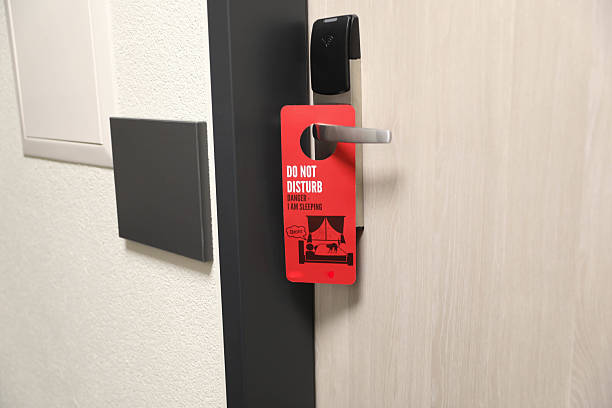
Futures trading is the act of buying or selling a standardized contract to exchange an asset
- John smith
- Trending
- 2025-08-18
- 1929K
If you’ve ever asked, “What is Futures Trading?”, you're not alone.
For many, the world of futures seems complex—filled with jargon, leverage, and high stakes.
But at its core, futures trading is a powerful, regulated way to speculate on or hedge against the future price of assets like stocks, commodities, and currencies.
Now, a revolutionary shift is transforming how traders access capital: the Zero Evaluation Model.
This new approach is democratizing futures trading, removing artificial barriers, and giving skilled traders instant access to funded accounts.
In this in-depth guide, we’ll explore:
- A clear, beginner-friendly answer to “What is Futures Trading?”
- How the Zero Evaluation Model works
- Why it’s disrupting traditional prop firm structures
- Who benefits most—and who should avoid it
- Real-world impact on trader success rates
By the end, you’ll understand how this model is changing the game for retail and professional traders alike.
✅ What is Futures Trading? A Clear, Practical Definition
Futures trading is the act of buying or selling a standardized contract to exchange an asset (like oil, gold, or stock indices) at a set price on a future date.
Unlike stocks, where you own a piece of a company, futures are contracts—legal agreements traded on regulated exchanges like the CME Group.
Key Features of Futures Contracts:
- Standardized Size: Every contract has fixed specifications (e.g., 50x S&P 500 Index for ES)
- Leverage: Control large positions with a small amount of capital
- 24-Hour Access (Almost): Trade globally on CME Globex (6 PM – 5 PM ET)
- Daily Settlement: Profits and losses marked-to-market daily
- Expiration Dates: Contracts expire monthly or quarterly
💡 Example: You buy 1 E-mini S&P 500 (ES) futures contract at 5,500. If it rises to 5,520, you make $1,000 (20 points × $50 per point).
✅ Why Traders Use Futures
| Speculators | Profit from price movements (e.g., trading NQ during tech rallies) |
| Hedgers | Protect against price changes (e.g., farmers locking in crop prices) |
| Arbitrageurs | Exploit price differences between markets |
As a retail trader, you’ll likely be a speculator—using futures to profit from market direction with precision and leverage.
✅ The Traditional Path: Evaluation Challenges
For years, the only way to trade with firm capital was to pass a multi-stage evaluation:
- Hit a profit target (e.g., 8% in 30 days)
- Follow minimum trading days
- Stay under daily drawdown limits (e.g., 5%)
This model was designed to filter out impulsive traders—but it also eliminated many skilled, disciplined traders who failed due to:
- Emotional stress
- Bad timing
- Overtrading under pressure
📉 Reality: 70–80% of evaluation attempts fail—not because of poor strategy, but due to psychological strain.
✅ The Zero Evaluation Model: A New Era in Futures Trading
The Zero Evaluation Model eliminates the traditional challenge.
Instead of proving yourself in a high-pressure test, you pay a one-time fee and gain immediate access to a funded account.
How It Works:
- Pay a Funding Fee ($200–$1,000)
- Receive a Funded Account ($50K–$200K)
- Trade Under Risk Rules (e.g., 5% daily loss limit)
- Keep 70–90% of Profits
- Scale After Consistent Performance
✅ No profit target. No minimum days. No evaluation.
This isn’t “free money.”
It’s instant access for traders who’ve already proven their skills—just not in a timed challenge.
✅ Why the Zero Evaluation Model Is Changing the Game
1. Removes Artificial Stress
Traditional evaluations create fear, FOMO, and revenge trading.
The Zero Evaluation Model lets you:
- Trade with real capital from Day 1
- Focus on consistency, not survival
- Build real-market experience faster
🧠 Psychological Insight: Traders perform better when they’re not under artificial deadlines.
2. Rewards Real Skill, Not Luck
The old model often favored traders who got lucky during volatile periods.
The new model rewards those who:
- Have a proven strategy
- Follow risk management rules
- Trade with discipline and patience
It’s not about passing a test—it’s about trading like a professional.
3. Accelerates Career Growth
In traditional models, scaling takes months.
With the Zero Evaluation Model, traders can:
- Scale after 30 days of consistent profits
- Increase lot size gradually
- Unlock larger accounts faster
This creates a positive feedback loop: profit → scale → more profit.
4. Attracts Serious Traders
Because the model requires a financial commitment, it filters out hobbyists and attracts serious, disciplined traders.
✅ Result: Lower failure rates, higher retention.
✅ Who Should Use the Zero Evaluation Model?
✅ Ideal For:
- Experienced traders with a proven strategy
- Demo traders with 50+ winning paper trades
- Small-account traders who want to scale
- Disciplined traders who follow rules
❌ Not Recommended For:
- Complete beginners
- Emotional traders
- Those who don’t understand risk management
- Traders who overtrade
🚫 Warning: Instant funding doesn’t mean instant success.
✅ Real-World Example: From Demo to $100K in 90 Days
Trader Profile:
- 6 months of demo trading (MES, NQ)
- Proven trend-following strategy
- Strong risk management
Action:
Joined The Funded Trader’s Express Program ($500 fee) → $50K account
Results:
- First month: $3,200 profit (6.4%)
- Second month: $4,800 profit (9.6%)
- Scaled to $100K account
- Withdrew $7,000 in 90 days
💡 Key Insight: He didn’t need to “pass” anything.
His skills were already proven.
✅ Final Thoughts: What is Futures Trading? It’s Evolving
What is Futures Trading?
It’s a powerful, regulated, and accessible way to trade the world’s most important financial markets.
And the Zero Evaluation Model is changing the game by:
- Removing artificial stress
- Accelerating growth
- Rewarding consistency
It’s not for everyone.
But for those ready, it’s a game-changer.
Because in the end, trading isn’t about passing tests.
It’s about performing with real capital—and the Zero Evaluation Model lets you do that from Day 1.
Leave a Reply
Please login to post a comment.












0 Comments